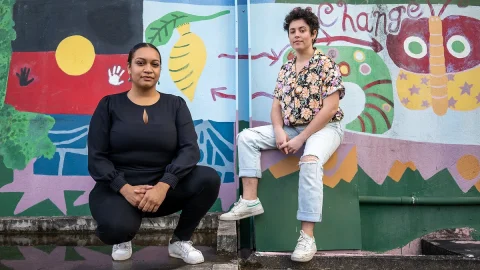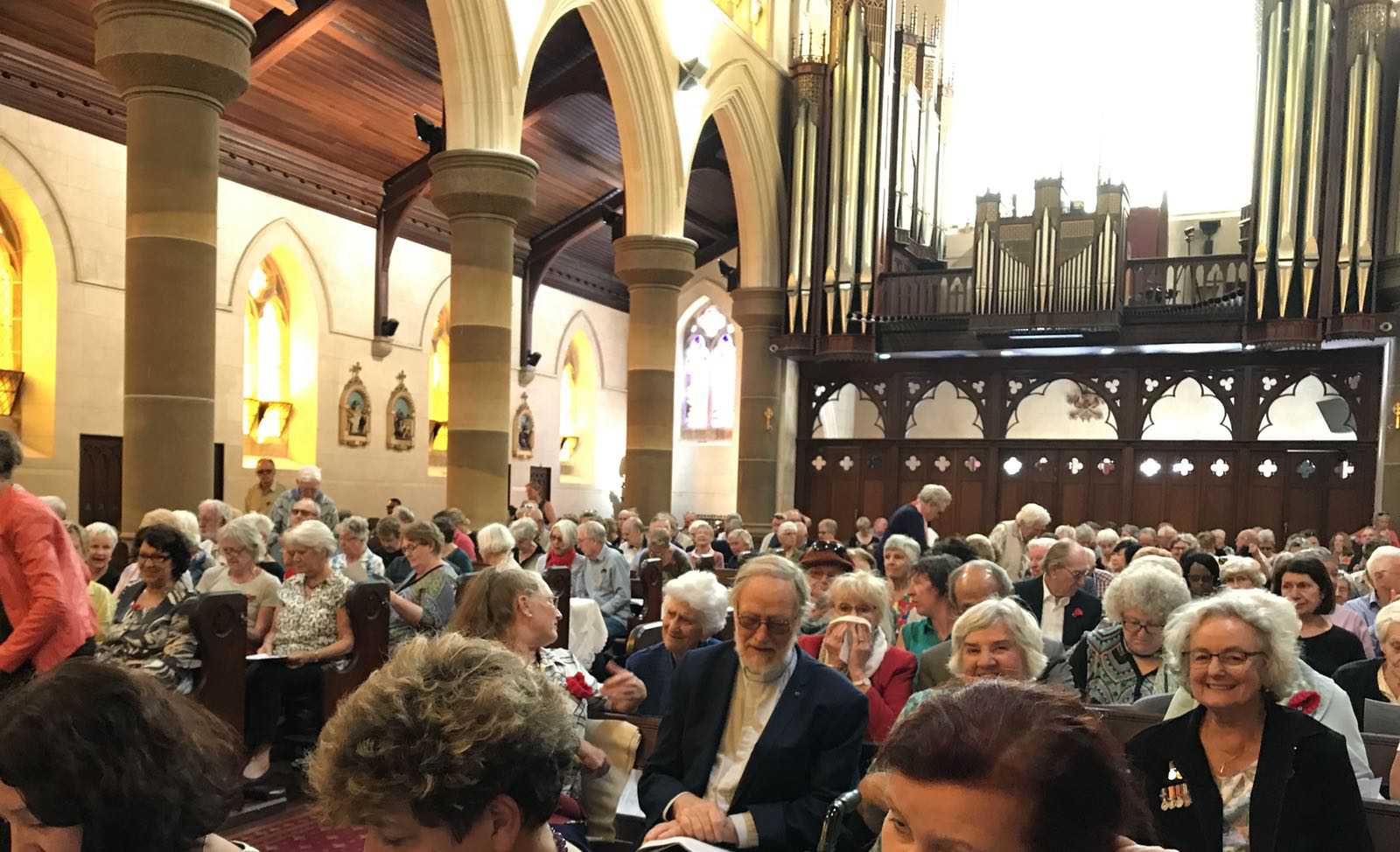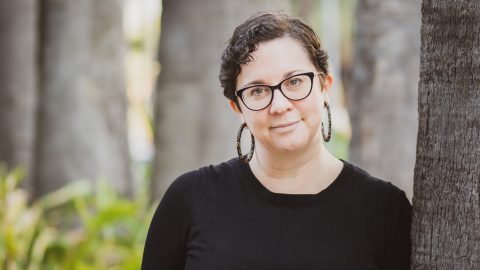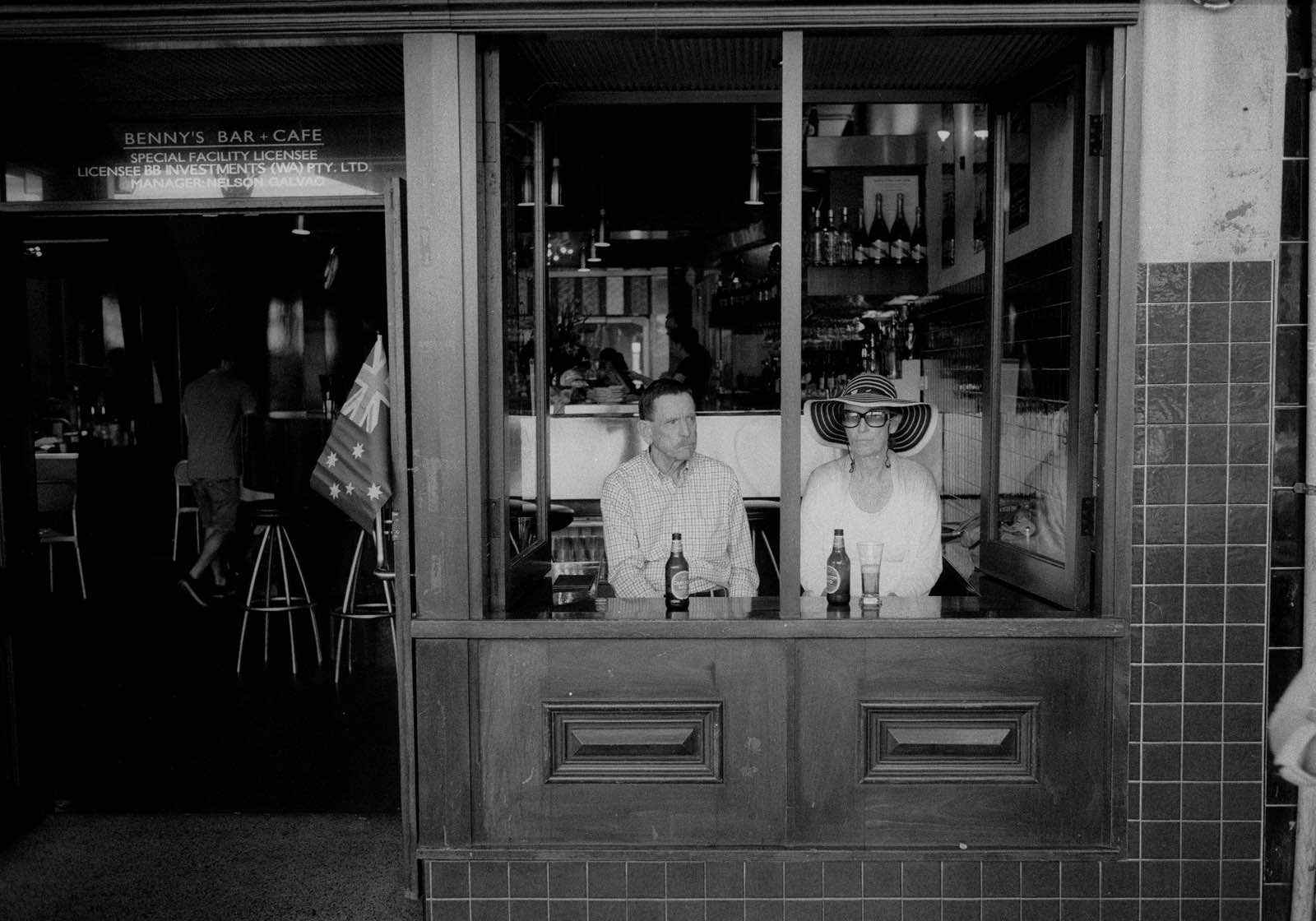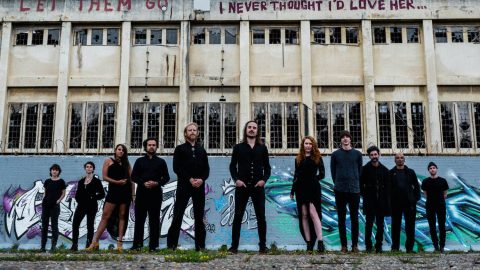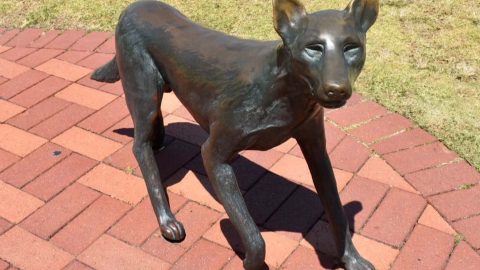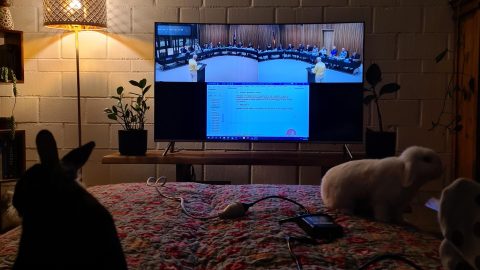In Australia, so many of our place names and street names have European origins.
Recently, I visited Glendalough, in County Wicklow, Ireland.
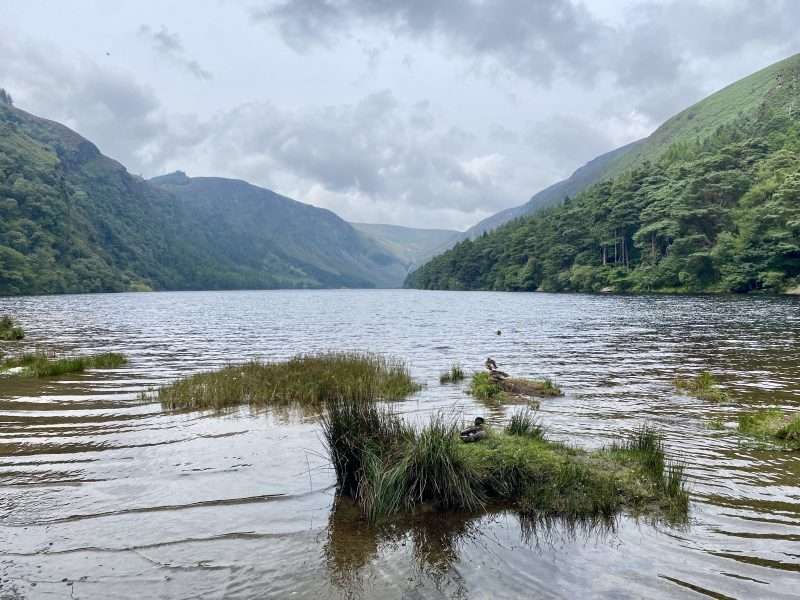
The name Glendalough comes from the Gaelic (Gleann da Loch), meaning ‘the valley of two lakes’.
It’s a very special place; for thousands of years people have been drawn to this place, to enjoy the scenery, history, archeology and wildlife.
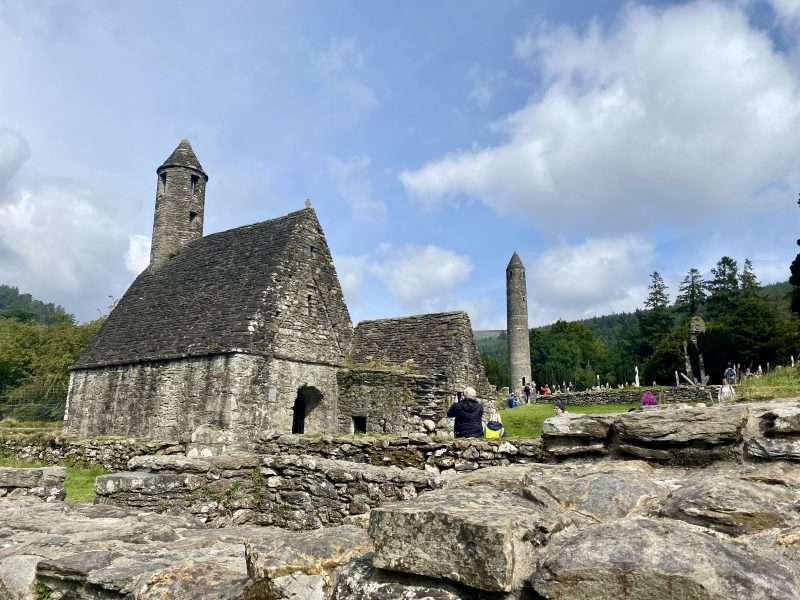
Glendalough is home to one of Ireland’s most important monastic sites. St Kevin founded this early Christian settlement in the 6th century. There are a number of monastic remains; a 30m high Round Tower, St Kevin’s Church, the remains of several other churches, a cathedral, houses and large granite crosses. It makes one think of monks and medieval life.
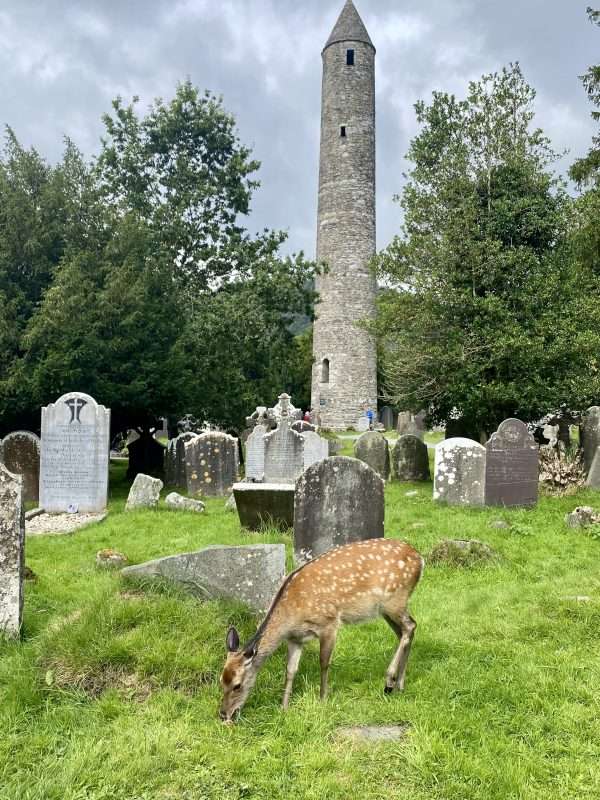
Fallow deer graze amongst the ruins and gravestones. The deer create a perfect pastoral mise-en-scene against the backdrop of the ancient round tower.
Visitors find themselves surrounded by nature. Steep mountains rise at either side of the glacial valley, carved by grinding glaciers in the last Ice Age. Clouds pour over the lip of the valley and streams bubble over rocks.
On the lower slopes are oak forests, where you’ll find squirrels, foxes and birds. It’s a place that stills your mind and inspires your heart. The monuments and lakes are accessible all year round at anytime of the day and there is no fee.
We have a Glendalough in Perth too – but pronounced ‘Glendalow’. It’s located between Lake Monger and Herdsman Lake and, yes, it is named after the famous monastic settlement in Ireland. It too has two lakes and a strong connection to the Catholic Church.
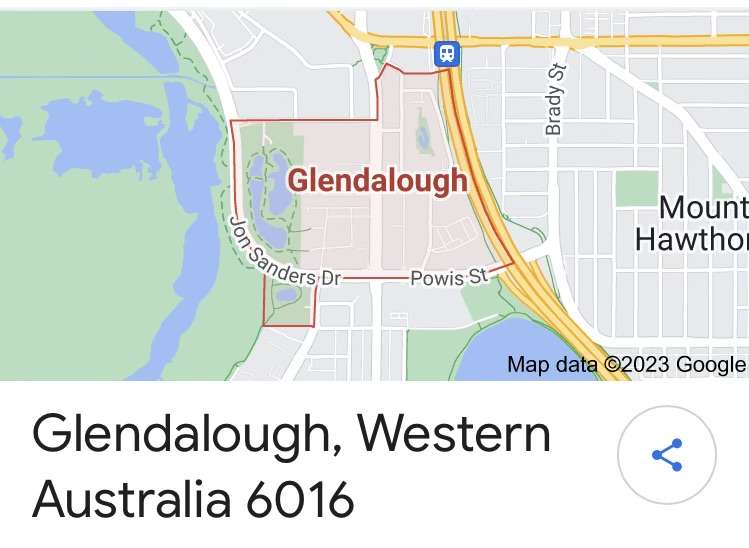
In 1837, a crown grant for Glendalough and part of Herdsman Lake was made to Thomas Helms and later, in 1887, transferred to Bishop Gibney. This area has a strong association with the Catholic Church and passed through different orders of the Church until 1921.
From 1949, the State Housing Commission bought part of the area from the Church and development began. Five of the early streets, including Leeder Street and Powis Street, were named after passengers on the ship ‘Rockingham’.
Today, Lake Monger Reserve is used extensively for recreation with 12,000 visitors a week. Activities include bird watching and exercise; a 3.8km paved walking/cycling track encircles the lake.
This area has a rich, cultural heritage. Local Whadjuk people, led by Yellagongam used the area traditionally as a source of food and a place for fishing, camping and leisure.
Lake Herdsman was known as Njookenbooro, and Galup is the Noongar name for Lake Monger, meaning a place of fire. Families lived and maintained their home campfires here for millennia.
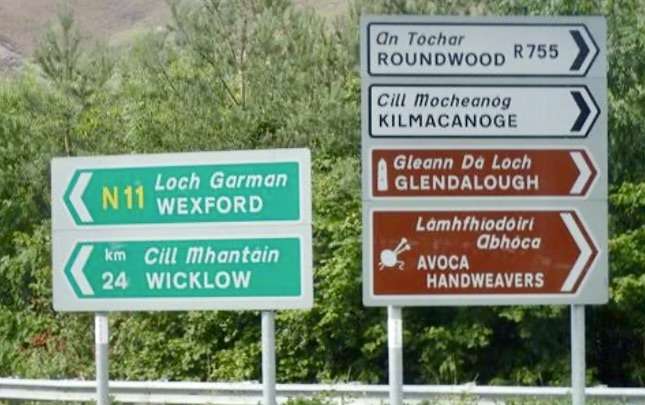
So, what’s in a name? William Shakespeare’s famous quote, from Romeo and Juliet, usually means that names don’t really matter – what do you think?
Bilingual signage has been a reality in Ireland for decades – the Irish language (Gaelic) is displayed on the top of the sign in Italics and the English version below it. You’ll also find bilingual signs in Wales and Belgium, to mention just a few countries.
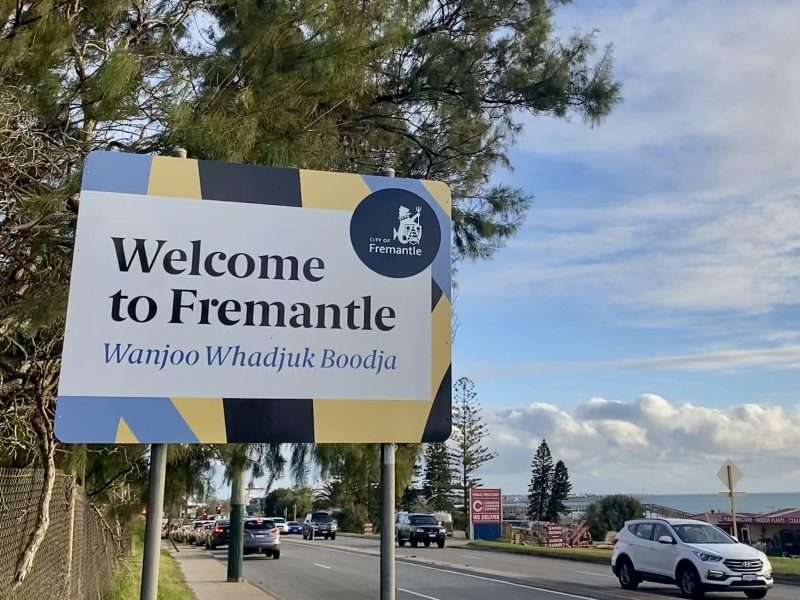
I love the new signs on Stirling Highway – Welcome to Fremantle, Wanjoo Whadjuk Boodja.
* STORY AND PHOTOGRAPHS by Jean Hudson @jeansodyssey. Jean is our Shipping Correspondent and also a regular feature writer and photographer here on the Shipping News. You may like to follow up her informative Places I Love stories, as well as other feature stories and Freo Today photographs, right here.
WHILE YOU’RE HERE –
PLEASE HELP US TO GROW FREMANTLE SHIPPING NEWS
FSN is a reader-supported, volunteer-assisted online magazine all about Fremantle. Thanks for helping to keep FSN keeping on!
** Don’t forget to SUBSCRIBE to receive your free copy of The Weekly Edition of the Shipping News each Friday!
~~~~~~~~~~~~~~READERS’COMMENTS~~~~~~~~~~~~~…
From Steven Secker, 23/5/24
Your web page tells us that the Perth suburb Glendalough was named after the Irish monastic town of the same name, but it also tells us that it’s known as glen-da-low here. If we show some respect for the origin of the name it should be pronounced glen-da-loch, which is how it was pronounced when I was growing up and had in-laws living in that suburb in the 70s and 80s.
Australians have a reputation for second-best pronunciations. How about we fix that, show some respect for its origin, and pronounce Glendalough properly? The name means something like “valley of the (two) lakes”. Hence loch, not low.
